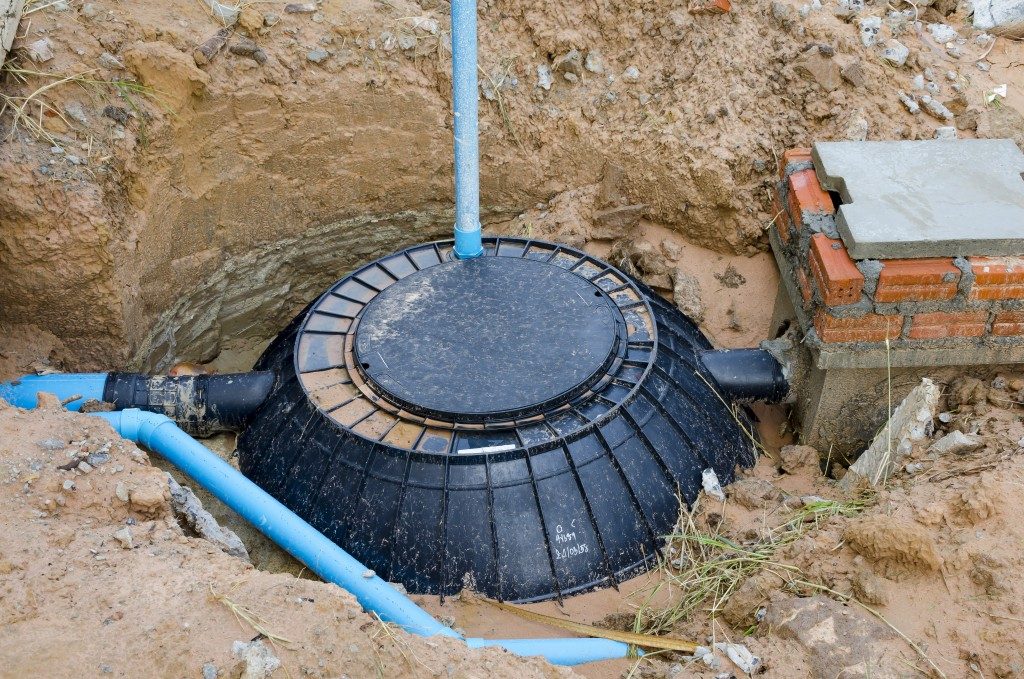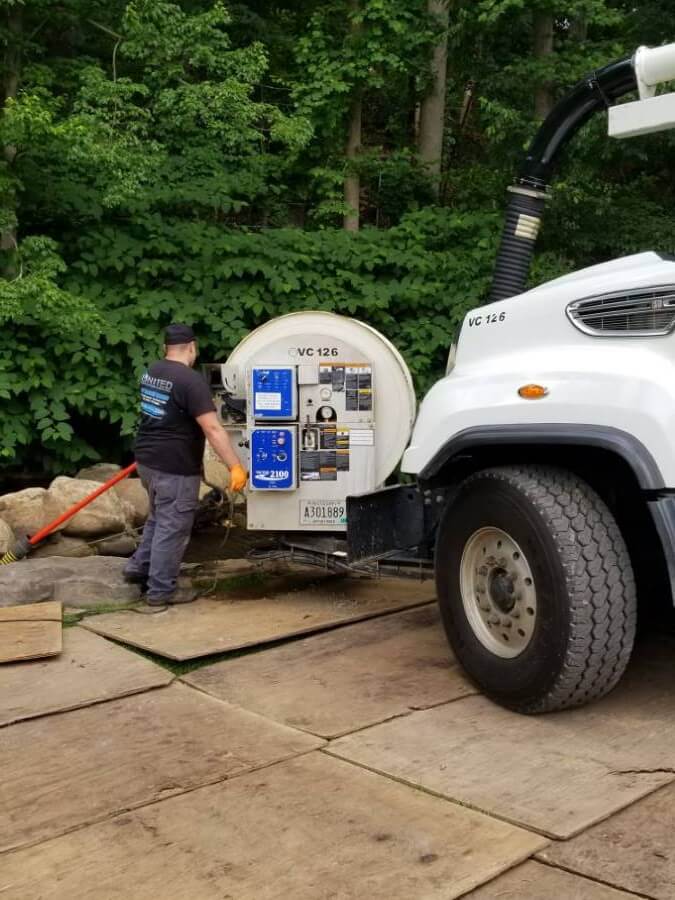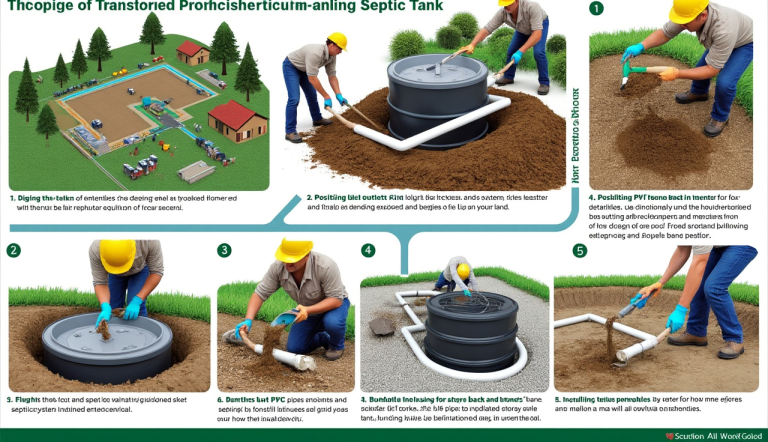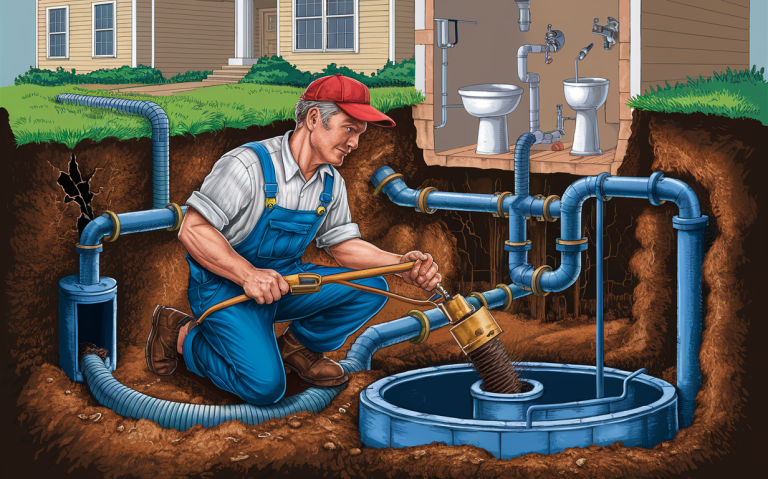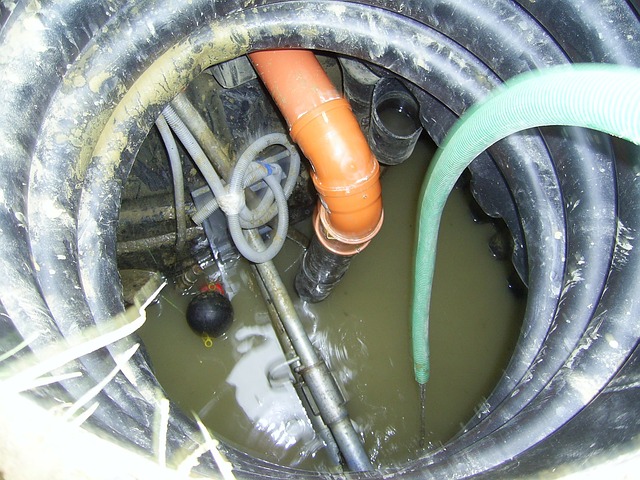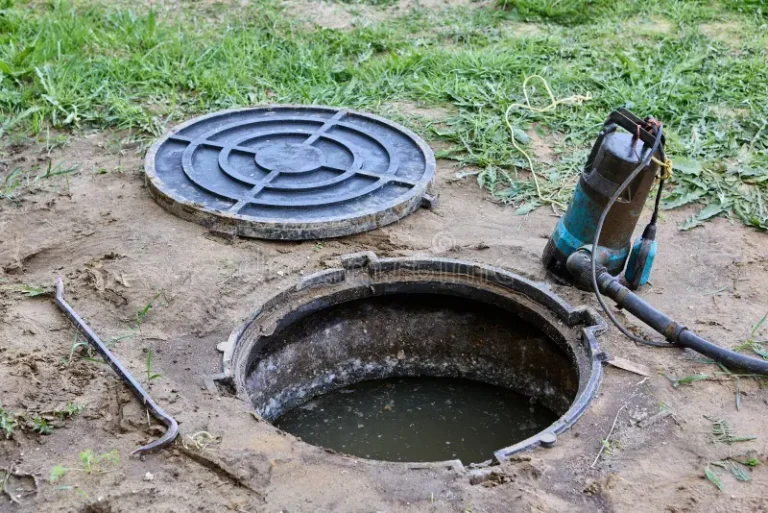Essential Septic System Maintenance Tips for Homeowners
Discover essential septic system maintenance tips. Learn how to protect your investment, prevent costly repairs, and safeguard the environment.
Septic system maintenance tips are crucial for preventing costly repairs and environmental hazards. By following these essential tips, homeowners can keep their septic systems running smoothly and avoid potential issues.
Table of Contents
Key Takeaways
- Pump your septic tank every 3-5 years to prevent overflow and system failure.
- Conserve water usage to reduce strain on your septic system
- Avoid flushing non-biodegradable items and harsh chemicals down drains
- Protect your drain field by keeping vehicles and heavy equipment off the area
- Schedule regular inspections with a professional septic service company
- Use septic-safe products and avoid excessive use of antibacterial cleaners
- Keep detailed records of all maintenance and repairs for future reference
Understanding Your Septic System Maintenance Tips
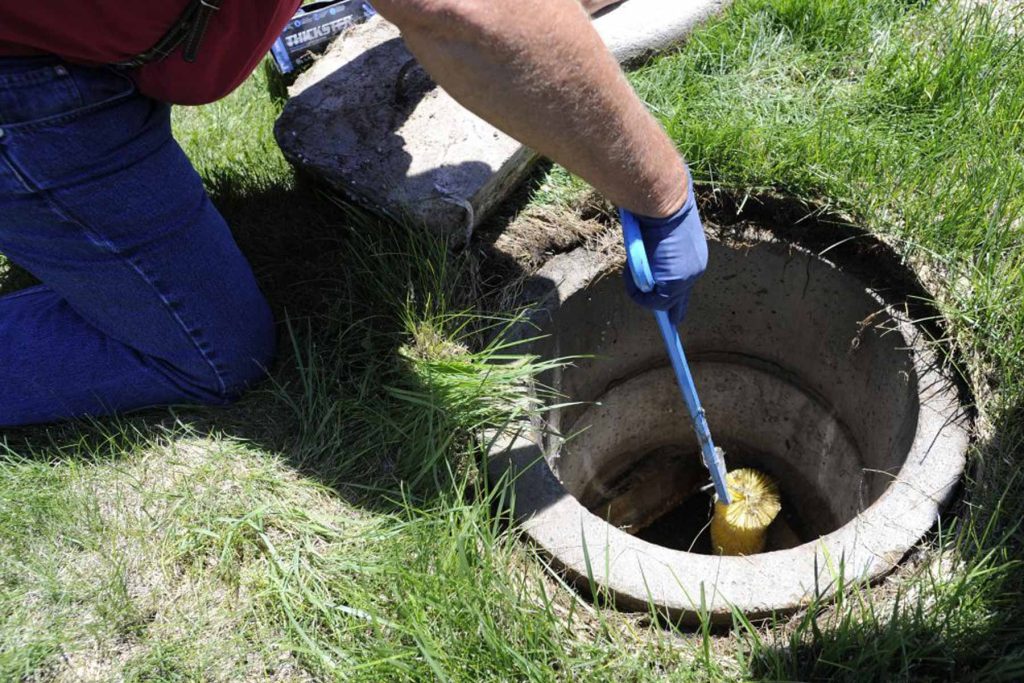
Before diving into septic system maintenance tips, it’s important to understand the basic components of your septic system. A typical septic system consists of a septic tank, drainfield, and soil. The septic tank is where wastewater from your home is initially treated, separating solids from liquids. The drain field is responsible for further treating the liquid effluent before it’s released into the soil.
The Role of Bacteria in Your Septic System
Bacteria play a crucial role in breaking down organic matter within your septic tank. These microscopic organisms help to decompose solid waste, allowing the system to function properly. Maintaining a healthy bacterial population in your septic tank is essential for efficient waste treatment.
Regular Pumping: The Foundation of Septic System Maintenance Tips
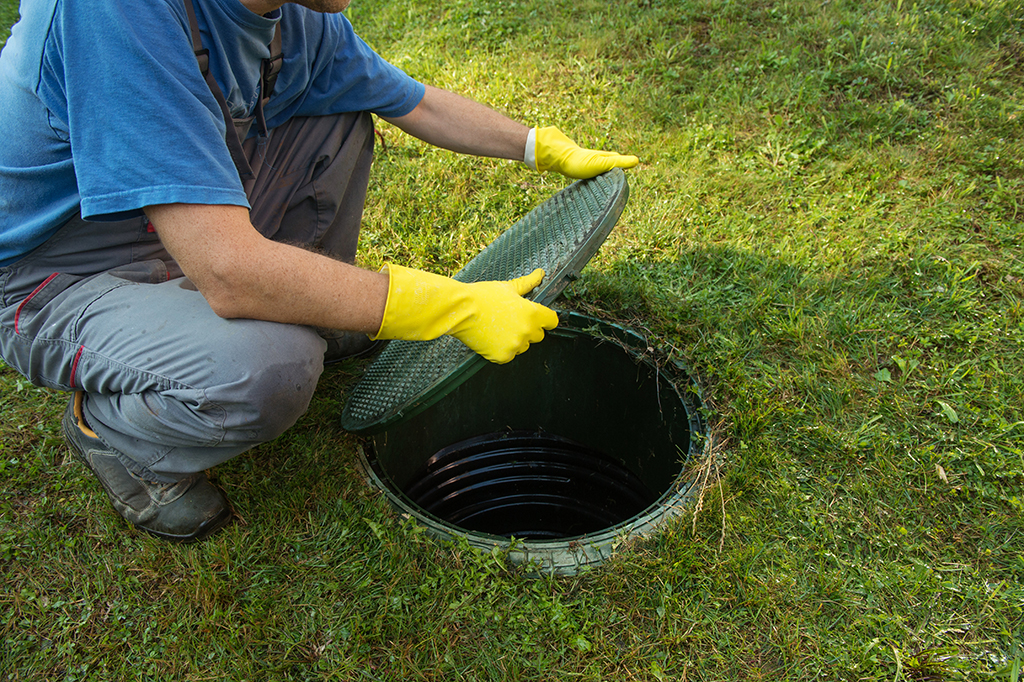
One of the most important aspects of septic system maintenance is regular pumping. Over time, solid waste accumulates in your septic tank, reducing its capacity to treat wastewater effectively. Pumping removes this buildup, preventing potential system failures and costly repairs.
How Often Should You Pump Your Septic Tank?
The frequency of pumping depends on several factors, including household size, water usage, and tank size. As a general rule, most septic tanks should be pumped every 3-5 years. However, larger households or those with higher water usage may need more frequent pumping.
Water Conservation: Reducing Strain on Your Septic System
Conserving water is not only good for the environment but also helps maintain your septic system. Excessive water use can overwhelm your septic tank, leading to incomplete treatment of wastewater and potential system failure.
Simple Water-Saving Techniques
Implementing water-saving techniques can significantly reduce the strain on your septic system. Septic system maintenance tips and some easy ways to conserve water include:
- Fixing leaky faucets and toilets promptly
- Installing low-flow showerheads and faucet aerators
- Using high-efficiency washing machines and dishwashers
- Taking shorter showers and turning off the water while brushing teeth
Proper Waste Disposal: What Not to Flush
What goes down your drains has a direct impact on your septic system’s health. Flushing non-biodegradable items or harmful chemicals can disrupt the bacterial balance in your septic tank and cause system failures.
Harmful Items to Avoid
To protect your septic system, avoid flushing or pouring the following items down your drains:
- Cooking grease and oils
- Coffee grounds
- Cigarette butts
- Dental floss
- Disposable wipes (even those labeled “flushable”)
- Feminine hygiene products
- Medications
- Paint and other chemicals
Drainfield Protection: Safeguarding Your System’s Final Stage
Your drain field is a crucial component of your septic system, responsible for filtering and treating wastewater before it enters the soil. Protecting your drain field is essential for maintaining a healthy septic system and preventing groundwater contamination.
Best Practices for Drainfield Care
To keep your drain field functioning properly:
- Avoid parking vehicles or heavy equipment in the drain field area
- Don’t plant trees or shrubs with deep root systems near the drain field
- Redirect rainwater and runoff away from the drain field
- Avoid installing structures like patios or decks over the drain field
Regular Inspections: Catching Problems Early
Regular inspections by a professional septic service company can help identify potential issues before they become major problems. These inspections typically involve checking the tank’s sludge and scum levels, examining the system’s components, and assessing the drainfield’s condition.
What to Expect During a Septic Inspection
During a professional inspection, the technician will:
- Measure the levels of sludge and scum in your septic tank
- Check for signs of leaks or damage to the tank and pipes
- Inspect the baffles and filters for proper function
- Evaluate the drain field for signs of saturation or failure
- Provide recommendations for maintenance or repairs if needed
Using Septic-Safe Products: Protecting Your System’s Ecosystem
The products you use in your home can have a significant impact on your septic system’s health. Harsh chemicals and antibacterial cleaners can kill the beneficial bacteria in your septic tank, disrupting the natural treatment process.
Choosing Septic-Friendly Alternatives
Opt for septic-safe products whenever possible:
- Use phosphate-free, biodegradable detergents
- Choose natural cleaning products over harsh chemical cleaners
- Avoid excessive use of bleach and antibacterial soaps
- Consider using septic-safe toilet paper
Proper Landscaping: Enhancing Your Septic System’s Performance
The landscaping around your septic system can affect its performance and longevity. Proper plant selection and maintenance can help prevent root intrusion and soil erosion, which can damage your septic system components.
Landscaping Do’s and Don’ts
When landscaping near your septic system:
- Do plant grass over the drain field to prevent soil erosion
- Do use shallow-rooted plants like wildflowers or groundcovers
- Don’t plant trees or shrubs with deep root systems near the system
- Don’t create gardens or raised beds over the drain field
Seasonal Considerations: Adapting Maintenance for Middletown’s Climate
Middletown, New York experiences distinct seasons, which can affect your septic system’s performance. Adapting your maintenance routine to account for seasonal changes can help prevent issues and extend your system’s lifespan.
Winter Septic Care in Middletown
During Middletown’s cold winters:
- Avoid plowing or shoveling snow off the drain field area
- Maintain a layer of snow cover to provide insulation
- Minimize water usage during extreme cold to prevent freezing
- Consider adding insulation to exposed pipes and the septic tank
Spring and Summer Maintenance
As temperatures rise in Middletown:
- Check for signs of pooling water or foul odors around the drain field
- Schedule your annual inspection and pumping if needed
- Be mindful of increased water usage from summer activities
- Keep an eye out for lush, overgrown grass in the drain field area, which may indicate a leak
Record Keeping: Tracking Your Septic System’s Health
Maintaining detailed records of your septic system’s maintenance and repairs can help you stay on top of its needs and provide valuable information for future homeowners or service providers.
What to Include in Your Septic System Records
Keep a file with the following information:
- The location of your septic tank and drain field
- Tank size and system design specifications
- Dates of inspections, pumpings, and repairs
- Names and contact information for service providers
- Any issues or concerns noted during inspections or maintenance
Common Septic System Issues in Middletown
Understanding common septic system problems specific to the Middletown area can help you identify and address issues early.
Dealing with High Water Tables
Middletown’s proximity to the Hudson River and its tributaries can lead to high water tables in some areas. This can cause problems for septic systems, including:
- Reduced drain field efficiency
- Increased risk of system backup
- Potential groundwater contamination
To mitigate these issues, consider:
- Installing an advanced treatment system
- Raising the drain field if possible
- Implementing aggressive water conservation measures
Addressing Soil Challenges
Some areas of Middletown have clay-rich soils, which can impact septic system performance. Clay soils have poor drainage, which can lead to:
- Slow percolation in the drain field
- Increased risk of system backup
- Reduced treatment efficiency
If you have clay soil on your property, consider:
- Installing an alternative septic system designed for poor soils
- Implementing a pressure distribution system
- Increasing the size of your drain field to improve absorption
The Role of Professional Septic Services
While many aspects of septic maintenance can be handled by homeowners, some tasks require professional expertise. Working with a reputable septic service company in Middletown can help ensure your system remains in top condition.
When to Call a Professional
Seek professional help if you notice:
- Slow-draining fixtures or gurgling sounds in pipes
- Sewage odors inside or outside your home
- Wet or spongy areas in your yard, especially near the drain field
- Sewage backing up into your home
- Algae blooms in nearby ponds or lakes
Septic System Upgrades: When to Consider Modernizing
As septic technology advances, you may want to consider upgrading your system to improve performance and reduce environmental impact.
Advanced Treatment Systems
Advanced treatment systems can provide better wastewater treatment, especially in areas with challenging soil conditions or high water tables. These systems may include:
- Aerobic treatment units
- Media filters
- Constructed wetlands
- Drip irrigation systems
Smart Septic Monitoring
New technologies allow for remote monitoring of your septic system, providing real-time data on tank levels, pump performance, and potential issues. These systems can help you catch problems early and optimize your maintenance schedule.
| Septic System Component | Maintenance Frequency | Professional or DIY |
|---|---|---|
| Septic Tank | Pump every 3-5 years | Professional |
| Drainfield | Inspect annually | DIY/Professional |
| Baffles and Filters | Check during pumping | Professional |
| Distribution Box | Inspect every 3-5 years | Professional |
| Pipes and Connections | Inspect annually | DIY/Professional |
| Water Conservation Method | Estimated Water Savings (per year) |
|---|---|
| Low-flow showerheads | Up to 2,700 gallons |
| High-efficiency toilets | Up to 13,000 gallons |
| Fixing leaky faucets | Up to 3,000 gallons |
| Water-efficient washing machine | Up to 7,000 gallons |
| Turning off water while brushing teeth | Up to 3,000 gallons |
By following these septic system maintenance tips, Middletown homeowners can ensure their systems operate efficiently and avoid costly repairs. Regular care and attention to your septic system will not only protect your investment but also help preserve the local environment and water resources.
Remember, when in doubt, always consult with a professional septic service provider to address any concerns or questions about your system’s health and performance. Discover essential septic system maintenance tips. Learn how to protect your investment, prevent costly repairs, and safeguard the environment. For more information, you can visit our website or contact us.

